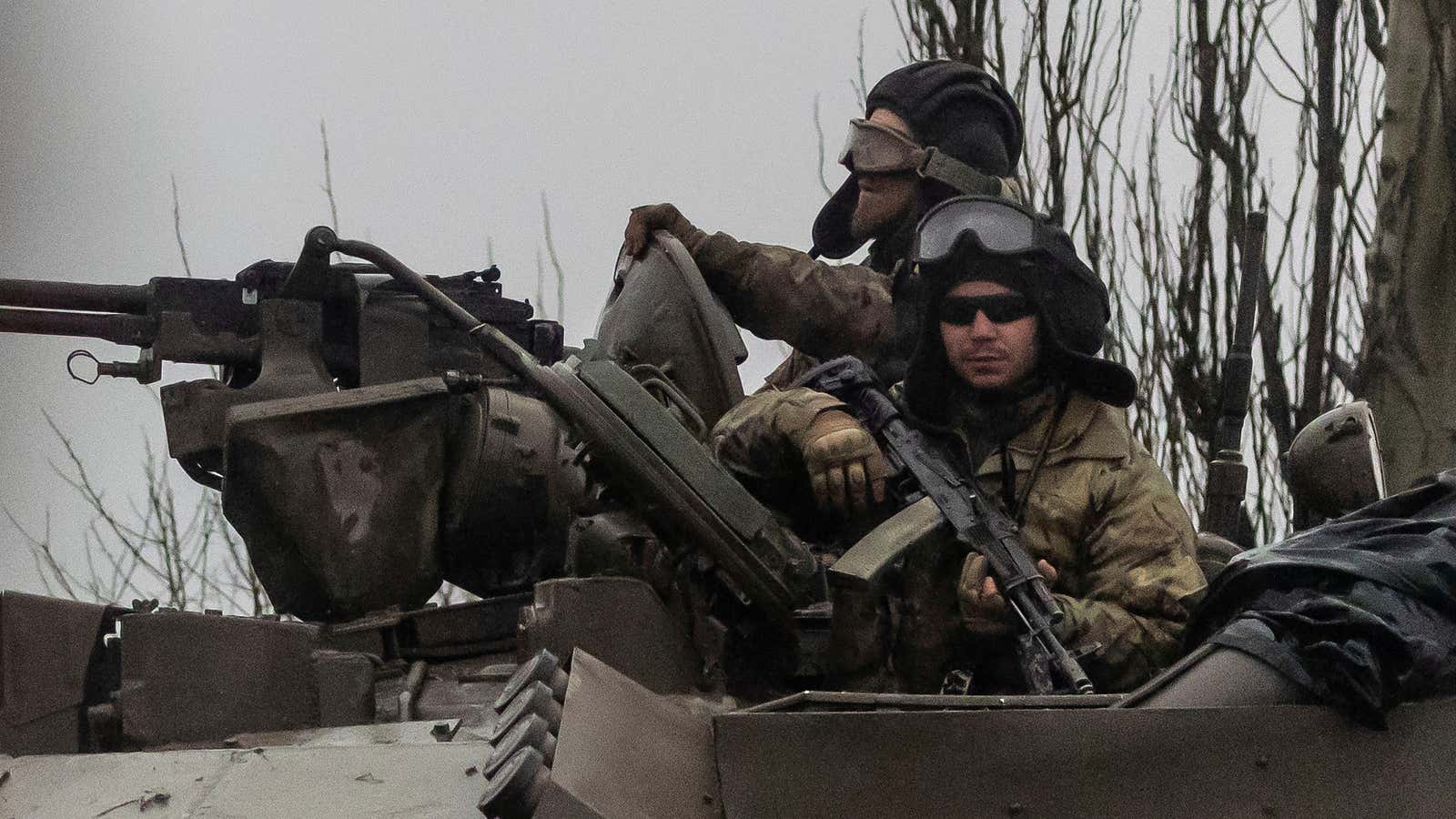As the world watches Russia invade Ukraine, many are looking for ways to help the besieged country. One somewhat unusual call is emerging from Ukrainian civilians and international organizations: Help fund the Ukrainian army.
Compared to Russian forces, the Ukrainian army is miniscule. Moscow can count on about a million active military forces and just as many reserves, and has a budget of more than $41 billion; Kyiv has fewer than 200,000 forces, and its budget is only $6 billion.
The US government has provided $200 million in military aid to Ukraine. To close more of the gap, Ukrainian civilians have resorted to crowdfunding to help their army, and international donations are now accepted, too.
A few charities in Ukraine and abroad are also accepting donations
The Ukrainian army is accepting funds to support its logistic and medical operations both directly and through charity organizations.
Direct donations to the Ministry of Defense must be made through bank transfers, as it is legally not allowed to receive funds through other payment systems. The currencies accepted are US dollars, euros, pounds, Swiss francs, Canadian dollars, Polish zloty, Czech crowns, Russian rubles, and Australian dollars. The donations are being routed by bank transfer through the Export Import Bank of Ukraine.
Other charities in Ukraine and abroad accepting donations include:
- Come Back Alive, which has raised more than $6 million in support of the Ukrainian army. The organization accepts bank transfers and card payments, as well as bitcoin.
- Army SOS, which only accepts bank transfers, through a German bank.
Civilian funding of the army is rare
Volunteer civilian military funding is unusual but not unheard of. Republican Spain accepted donations during the 1936-1939 civil war, and Israel’s state forces still does—despite having one of the best-funded militaries in the world.
In Ukraine, the current mobilization says a lot about the direct relationships civilians have developed with the army, especially since the previous tension with Russia in 2014, says Adrian Bonenberger, a former US infantry officer and a journalist who reported from Ukraine between 2015 and 2017.
Can donations make a difference?
Still, with such a huge disparity between the Russian and Ukrainian armies, can individual donations truly have an impact, beyond serving as a show of support to Ukraine?
Bonenberger says even a relatively small sum could help arm a civilian militia, providing willing citizens with rifles and other weapons that could significantly delay the advance of the Russian army into cities.
The problem, he says, is whether the donations will be accessed swiftly and effectively enough, as developments on the ground appear to be unfolding quickly.
